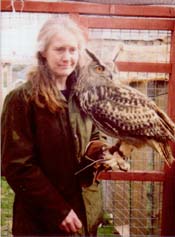book trade
Orb’s Bookshop
 Why am I surprised to find myself operating a secondhand bookshop? You’d think it would be my natural habitat. When we first became sweethearts back in prehistoric times, my husband and I made one discovery after another, sifting through the flotsam in innumerable old bookshops now defunct. Several of the adventures that started in them are still going on decades afterwards. We’ll always be fond of such places.
Why am I surprised to find myself operating a secondhand bookshop? You’d think it would be my natural habitat. When we first became sweethearts back in prehistoric times, my husband and I made one discovery after another, sifting through the flotsam in innumerable old bookshops now defunct. Several of the adventures that started in them are still going on decades afterwards. We’ll always be fond of such places.
Nevertheless, when we were planning this shop I had my doubts about the secondhand dimension. Such experience as I had in the book trade was with new books. Secondhand books are a bit of a mystery: the costliest ones aren’t necessarily the most beautiful. How is a beginner to know what price to ask? As a compromise, we decided to sell new books in one half of the shop and secondhand ones in the other.
Huntly has no other bookshop at present. Some shops sell books, but no dedicated bookseller has appeared on the scene for years. And no wonder – small towns have fewer businesses all the time. Even we, incomers of only seventeen years’ standing, can remember better times for trade in Huntly, especially in Deveron Street, which leads up to the Square. It used to be busy and businesslike, wearing the delicious perfume of Dean’s shortbread bakery; now it boasts just a pub, a milliner’s and this bookshop.
Our position being cryptic, and our shop being new, most of our customers are also our near neighbours. They prefer our secondhand half, where they influence the stock in subtle ways. They do this partly by unloading on us the books they’ve finished with, partly by guiding our choice of purchases. In other words, at sales and the like, our public is metaphorically hovering at our elbows to urge that prayer books are not to be sneezed at; that the Psalter in Metre always sells; that you cannot have too many Agatha Christies, Goosebumps, Point Horror, true crime studies or climbing books. Thanks to this disembodied guidance our secondhand section is developing guts and gravitas, and cultivating its frivolous side as well.
The new half of the shop evolves more slowly, but it, too, reflects our own tastes and our customers’ needs even-handedly. We started out with a stock of Penguins, which is gradually expanding: the town’s newsagents don’t keep them, which eases competition, and also I happen to like Penguins. On the other hand, we can’t base our stock merely on what we like. I’d like to specialise in popular science, fantasy and Celtic studies, but of these only fantasy is really a winner with readers. My husband would like to do transport and militaria: the customers are with him there.
Books of Huntly interest get snapped up before you can write the words ‘local’ and ‘Scottish’ on a bit of card. But the fantasy writer George MacDonald doesn’t seem to take the local fancy, even though he was born in Huntly in 1824 (at the dentist’s, as it is today). His fans, on pilgrimage to Huntly drift in from time to time on the trail of early editions.
In any case, we don’t yearn for a theme or direction. Eddie Fenwick recently called to ask what specialisms we’d like to list in his Guide to Secondhand Booksellers in Scotland. After some dithering I settled for ‘general’, on the principle that it’s a lofty aim to have something about everything, to create a place where discoveries are made. Some of the most significant things in life come about by accident, at variance from any conscious goal. In a bookshop there is always the possibility of discovering a key to the unknown.
Copyright Annie Lamb 2005.

Comments